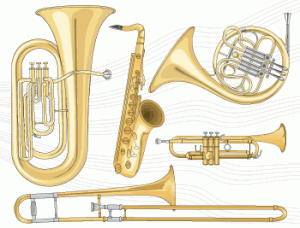The National Association of Music Merchants took a Gallup Poll in 2009 which showed that the interest in music making for fun is at an all-time high. So whether you're buying a guitar to mess with on your own, or you're purchasing your kid's first band instrument, you can use these ten options to save money when buying what could be an expensive musical instrument:
1. Price check first.
Before you shop for any musical instrument at all, do some research online or in person to get an idea of what an instrument like the one you're looking for typically costs. If you're buying for a first-time musician, consider lower-priced brands and varieties, but do research about a whole range of products so that you'll be educated enough to know when you're getting a good deal.
2. Buy used online.
Buying online through eBay or Craigslist is a popular and sometimes excellent way to save on musical instruments. Buying through eBay can be kind of tricky, especially if you're looking for something with a specific sound, as you won't be able to try out the instrument first. If you do buy through eBay, only work with sellers who have lots of excellent reviews and who give a detailed description of the item. Buying through Craigslist allows you to try out the instrument first, which is often a great idea.
3. Talk to your child's music teacher or band director.
Before you buy an instrument for your child, or for yourself if you're starting music lessons, talk to the instructor or band director about what you should get. Often times, music store representatives will try to upsell you to a more expensive instrument that you or your child really may not need. Stick with the list of possible instruments your music teacher or band director gives you, instead.
4. Rent an instrument.
Renting a musical instrument is often a good choice for band students and other new students who don't know if they'll stick with playing an instrument. Many music stores have rentals specifically for those who are members of the school band. If your child decides to make playing music a lifelong hobby, you can always buy an instrument down the road. Besides saving money, renting instruments has the advantage of allowing a music student to try several different types of instruments risk free before choosing which one to stick with.
5. See if the instructor has instruments to borrow.
Often times, the school band room will be furnished with instruments students can borrow – especially the larger, more expensive instruments like the tuba. Find out if this is an option at your school. If you're trying music lessons for the first time, you might see if the instructor has an instrument you can borrow for a while until you decide if you're going to stick with it.
6. Don't use store financing.
As when buying most items in a specialty store, when buying an instrument from a music store, financing is often available, but it's not usually a good deal. If you've decided to go ahead and buy a new instrument but don't have the money to pay for it in full right now, a credit card could offer better financing, as long as you can pay it off in a reasonable amount of time. The best credit card deals offer low interest rates on credit cards, which means that you won't have to pay much in interest on your new instrument like you would through the store financing.
7. Talk to musicians.
If you know any musicians who play the instrument you or your child is interested in, talk to them. They may have tips on where to get great deals on good instruments, information on which brands are best, or even old instruments they'd be willing to give or sell you. Often times, school bands will clean out their stores eventually, too, so you can get a decent instrument for free or next to nothing if you check with the band director.
8. Look at discounted stores.
If you're set on buying a new instrument, check out discounted stores like Musician's Friend or online stores rather than small music shops, which are going to offer higher prices. Buying online at discounted stores is a good idea for saving money, but, first, you should go into a brick and mortar store to try the exact model of instrument you're interested in to be sure it's what you want.
9. Know what you need.
This cannot be stressed enough: know what you need when it comes to a musical instrument. There's no reason to go buy a brand new music student a $1,000 violin, but, on the other hand, you do want to make sure you're buying a quality instrument that will make it easy for your student to fall in love with playing music. Again, it's very important to talk to teachers and other musicians about what they would suggest for your child.
10. Save on accessories, too.
Most instruments take some accessories – strings or bows or reeds or whatnot. These are easy to replace through online stores, where you can often save a bundle. It's also important that you learn to take care of the instrument properly, which can save you money in the long run by fending off repair costs.
Ashyia Hill from the credit card comparison website for college students, CreditDonkey says buying a new musical instrument can be a fun process, but it can also be expensive if you don't do it right. These tips will help you ride the trend of playing music for fun and relaxation without breaking the bank.
